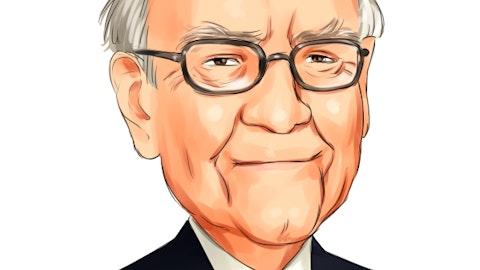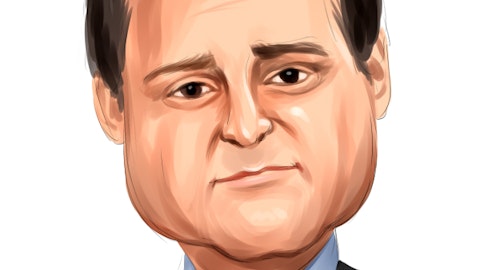Since the end of 2Q, the very popular biopharma companies, Arena Pharmaceuticals, Inc. (NASDAQ:ARNA), Questcor Pharmaceuticals, Inc. (NASDAQ:QCOR) and Vivus, Inc. (NASDAQ:VVUS) have performed poorly. Since the end of June, Questcor is down 51%, Vivus is down 24% and Arena is down 9%.
In looking at the stock performance, fund managers would have been better off invested in the large cap stable of pharma companies, such as Pfizer Inc. (NYSE:PFE) and Johnson & Johnson (NYSE:JNJ), than their smaller biopharma peers. Pfizer is up 12%, while Johnson & Johnson is up 2% since 2Q, not to mention both of these companies pay a dividend that yields 3.5%.
Arena is one of the two companies that are competing in the anti-obesity drug market. Arena and Vivus have attracted a lot of interest from investors who are betting that these drugs will be big time products. The FDA’s approval of the two weight loss drugs makes for the first such approval in 13 years. Both companies are up huge year to date, Arena up almost 400% and Vivus up over 120%, even though they are under pressure of late. The Centers for Disease Control and Prevention claims that approximately 36% of all adults in the U.S. are obese, and Jeff Levi of Trust for America’s Health claims that at least 44% of adults in every state of the country could be obese by 2030.
Luckily for fund managers, there was very little interest in Arena at the end of 2Q. The top fund owner was Perceptive Advisors, owning 635,000 shares. Also, the 2Q position taken by Perceptive was a new position. Although fund interest was limited, the company is expected to grow 75% this year and almost 30% next year, and even if Perceptive may have missed out on the initial stock rise, the firm may be betting on Arena’s long-term prospects.
Vivus has been beaten down over the past few weeks on news that the European regulators are unlikely to recommend approval of its anti-obesity drug, Qsymia, for distribution in Europe. As the news broke, the company was down over 11%, but JPMorgan maintained its overweight position on the company. Analyst Cory Kasimov stated that the U.S. market will be the overwhelming driver for the company and Europe only contributes around $5 to JPMorgan’s valuation. Passport Capital and QVT Financial took the biggest hits on the Vivus decline. At the end of June, each firm owned over 8 million shares. Worse yet, Vivus made up almost 8% of Passport’s and 20% of QVT’s 13F portfolio.
Questcor has seen the majority of its downward stock pressure within the last month as the U.S. government launched an investigation into the company’s promotional practices. All of this was spurred on by Aetna’s decision to not reimburse for Questcor’s drug, Acthar, except for use in infantile spasms. Acthar had been touted as a drug that could be used for a variety of illnesses and sicknesses. Jefferies downgraded the company and cut its price target from $60 to $30, and the company currently trades around $20—see if Questcor is a good buy. Many of the funds owning the most shares of Questcor at the end of 2Q were downsizing their positions. Top owner, Orbimed Advisors dumped 28% and Palo Alto Investors dumped 43% of their 1Q stakes.
Pfizer is still up over the past few months against an estimated 2012 sales decline of 11%, driven by declines in the company’s generic cholesterol drug Lipitor, which no longer has patent protection. Pfizer is planning an IPO offering for up to 20% of its animal health business, Zoetis, and expects to sell its nutrition unit to Nestle SA for $11.8 billion. Both initiatives will be completed in early 2013, with proceeds from the sale to be used for share buybacks—see if Pfizer is a good buy.
Johnson & Johnson is expected to grow revenue 8% in 2013, driven by the company’s acquisition of Synthes, a medical device company. Synthes is expected to add $4.3 billion in sales to Johnson & Johnson’s top line in 2013. Also, the $19.7 billion acquisition is expected to contribute $0.03-$0.05 to EPS in 2012 and $0.10-$0.15 in 2013—is Johnson & Johnson a good buy?
One fund making the right move in 2Q was Ken Fisher with Fisher Asset Management. Fisher was the top fund shareowner in both Pfizer and Johnson & Johnson at the end of 2Q, having 1.5% of his firm’s 13F portfolio invested in Pfizer and 2.1% in Johnson & Johnson. Other big names owning Johnson & Johnson were Warren Buffett and Jim Simons. The five companies are difficult to compare given their various sizes and drug pipelines. In looking just at the large cap pharma companies, Pfizer and Johnson & Johnson, both trade in line across the board, on market cap, dividend yield, P/S and P/E ratios. Both pay a dividend that yields over 3.5%, and provide much less risk than the other three. However, we do believe that the anti-obesity market will be big enough for both Arena and Vivus should their drugs officially make it to market.





